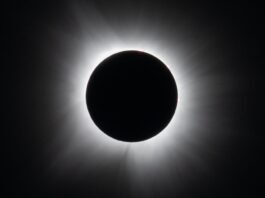For the primary time in historical past, a NASA-funded researcher will accompany their experiment on a industrial suborbital rocket. This milestone will happen aboard Blue Origin’s New Shepard suborbital rocket system, which is scheduled to launch no sooner than Thursday, August 29. The experiment, developed by a group from the University of Florida in Gainesville, seeks to research how gravitational adjustments throughout spaceflight affect plant biology. This mission, funded by NASA’s Flight Opportunities program, represents a major step ahead in space-based analysis and will have necessary implications for future area missions to the Moon and Mars.
Exploring Gravity’s Impact on Plant Biology
The key focus of the University of Florida’s experiment is to grasp how gravity shifts have an effect on the gene expression of vegetation, in response to NASA. Rob Ferl, a researcher on the college, will personally are likely to the payload in the course of the flight. He will activate small, self-contained tubes pre-loaded with vegetation and preservatives, which is able to biochemically freeze the samples at completely different phases of gravity. This revolutionary strategy will allow scientists to seize exact knowledge on how the plant’s organic processes reply to the various gravitational forces skilled throughout spaceflight.
During the mission, co-principal investigator Anna-Lisa Paul will carry out 4 equivalent experiments on the bottom as a management. The outcomes from these ground-based experiments will likely be in contrast with the information obtained from the spaceflight to supply a complete understanding of gravity’s results on plant development. The analysis goals to make clear how vegetation would possibly develop and develop in area, a important space of research for long-duration area missions the place sustainable meals manufacturing will likely be important.
Significance for Future Space Missions
This research may have far-reaching implications for future area exploration, significantly missions that contain prolonged stays on the Moon or Mars. Understanding how vegetation reply to completely different gravitational situations is essential for creating sustainable life help techniques in area. If profitable, this experiment may pave the best way for extra superior analysis in area agriculture, serving to to make sure that astronauts have a dependable supply of meals on long-term missions.
The college’s flight check was made potential by a grant awarded via the Flight Opportunities program’s TechFlights solicitation, with further help from NASA’s Division of Biological and Physical Sciences. The Flight Opportunities program is a part of NASA’s Space Technology Mission Directorate, which facilitates the demonstration of applied sciences for area exploration via suborbital testing with business flight suppliers. By enabling researchers to check their applied sciences in a related area atmosphere, this system accelerates the tempo of innovation and helps to increase the capabilities of area commerce.
Testing Thermal Protection Systems
In addition to the University of Florida’s experiment, the upcoming New Shepard flight may even carry one other NASA-supported payload developed by HeetShield, a small enterprise primarily based in Flagstaff, Arizona. HeetShield’s experiment will check two new thermal safety system supplies by mounting them on the surface of the New Shepard’s propulsion module. The aim is to judge how these supplies carry out below situations just like planetary entry, which is able to present beneficial knowledge for creating simpler warmth shields for future area missions. After the flight, the HeetShield group will analyse the supplies to find out how they had been affected by the flight and assess their potential to be used in area exploration.
Advancing Space Technology and Research
The Flight Opportunities program performs a important function in advancing area know-how by offering researchers with the chance to check their improvements in area. Whether it is understanding how vegetation develop in area or creating new supplies for thermal safety, these experiments are very important for the way forward for area exploration. As the primary NASA-supported researcher to fly on a industrial suborbital rocket, Rob Ferl’s mission marks a major step ahead within the quest to increase our information of area and develop the applied sciences wanted for profitable long-term missions past Earth.




